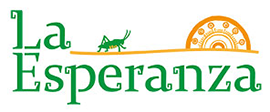
Paul Seyfert serves as the Opciones and Education Program Manager at La Esperanza, where he brings more than 35 years of experience in education and social services to his work with Latino and immigrant communities. A longtime advocate for the underserved, Paul shares how his personal journey, including coming out as a member of the LGBTQ community, has deepened his commitment to building connection, expanding opportunity, and helping others thrive. In this interview, he reflects on the importance of using his voice, creating space for others to be seen, and living authentically with purpose and pride.
What’s your role at La Esperanza, and what brought you to the organization?
Opciones and Education Program Manager
I have worked with minority and at-risk populations, particularly Latino and immigrant families, for many years as a public educator, and felt my background and experience would be beneficial to La Esperanza and the communities of Sussex County and Delaware.
What drew you to work with Latino and immigrant communities?
I have worked in public education and social services for more than 35 years, and I was drawn to the Latino and immigrant communities through my job, but I found that I enjoy the positive outlook of the immigrant population and the drive and determination to restart their lives and begin building lives that will allow their children and future generations to have what they may not have had if they had not been willing to take a chance and move to a country that they had never visited or lived in.
How has that experience shaped your perspective, personally or professionally?
As a teacher and parent, I have always been an advocate for the underserved, and I have come to the point that I can use my voice to challenge the status quo and aid populations that are not being heard or provided the resources that allow for success.
I have found that by using my skillsets and experiences, I can provide opportunities to others that may not have been within their reach and allow the interactions to be a mutually beneficial experience for all involved.
What does being part of the LGBTQ community mean to you?
I have been an advocate for the LGBTQ community, but as a closeted member, I had not experienced the love, friendships, and joy that are a big part of the rainbow family. Being an open member of the LGBTQ community has allowed me to become the me who I dreamed about without the fear or shame of hiding parts of me, and has allowed me to build my own family**,** which allows me to be the authentic me, without any restrictions or negative feelings.
What similarities or differences have you noticed in how LGBTQ identity shows up in Latino and non-Latino communities?
The LGBTQ identity in Latino and non-Latino communities is very similar in that the LGBTQ member only wants to live their true life, and the response of the individual’s family and friends when they come out, and after, is key to being the true self. The negative connotations that may be expressed due to culture, religion, or lack of knowledge are the same in all communities, and ensuring that each LGBTQ person feels safe and heard as an individual is key to how they show up in life and their community.
What does Pride mean to you this year?
The concept of Pride for me is that I am not ashamed or scared to be me, no matter where I am or who I am with.
The current vibe in the world has provided me with the push to become more open and want to share my story with others and be seen as a proud gay man who advocates for all to be heard and supported regardless, and share that there is no place for hate, prejudice or inequality in this world.
Pride lets me acknowledge to the world that I am also a father of three children who lives a life that includes family and friends who are mutually supportive and allow me to be me without any restrictions, and I give that in return. And that I engage in work that allows me to be an agent of change and use my skillset and talents to help others become the best person that they want to become.
